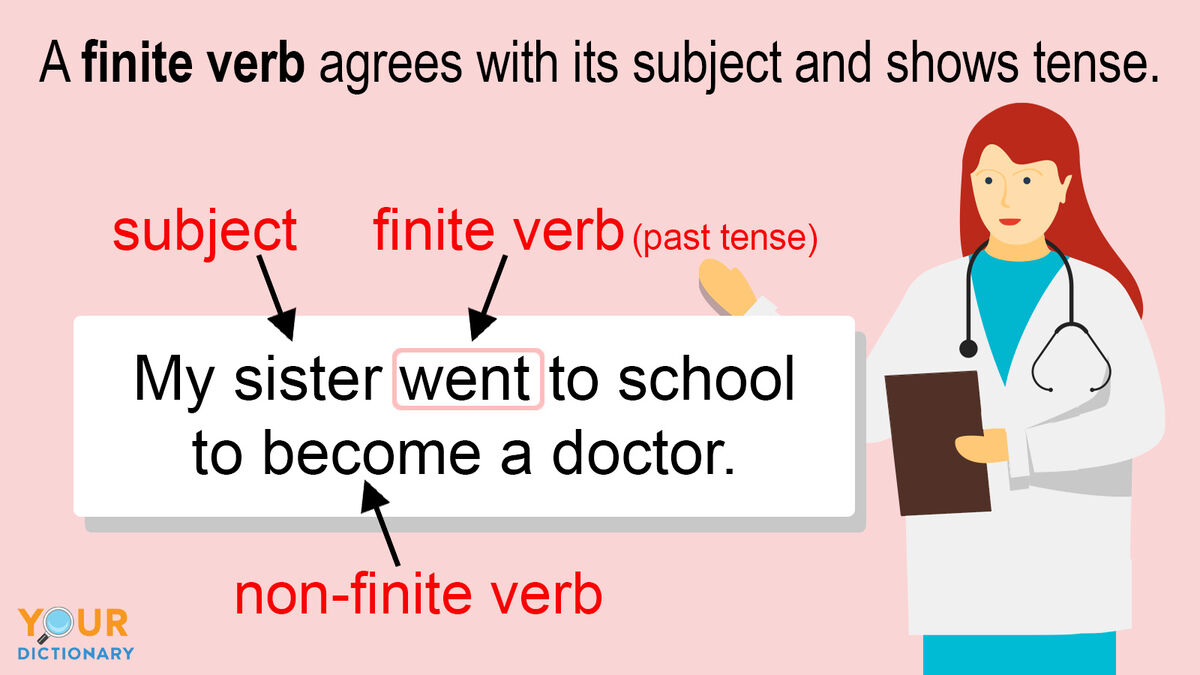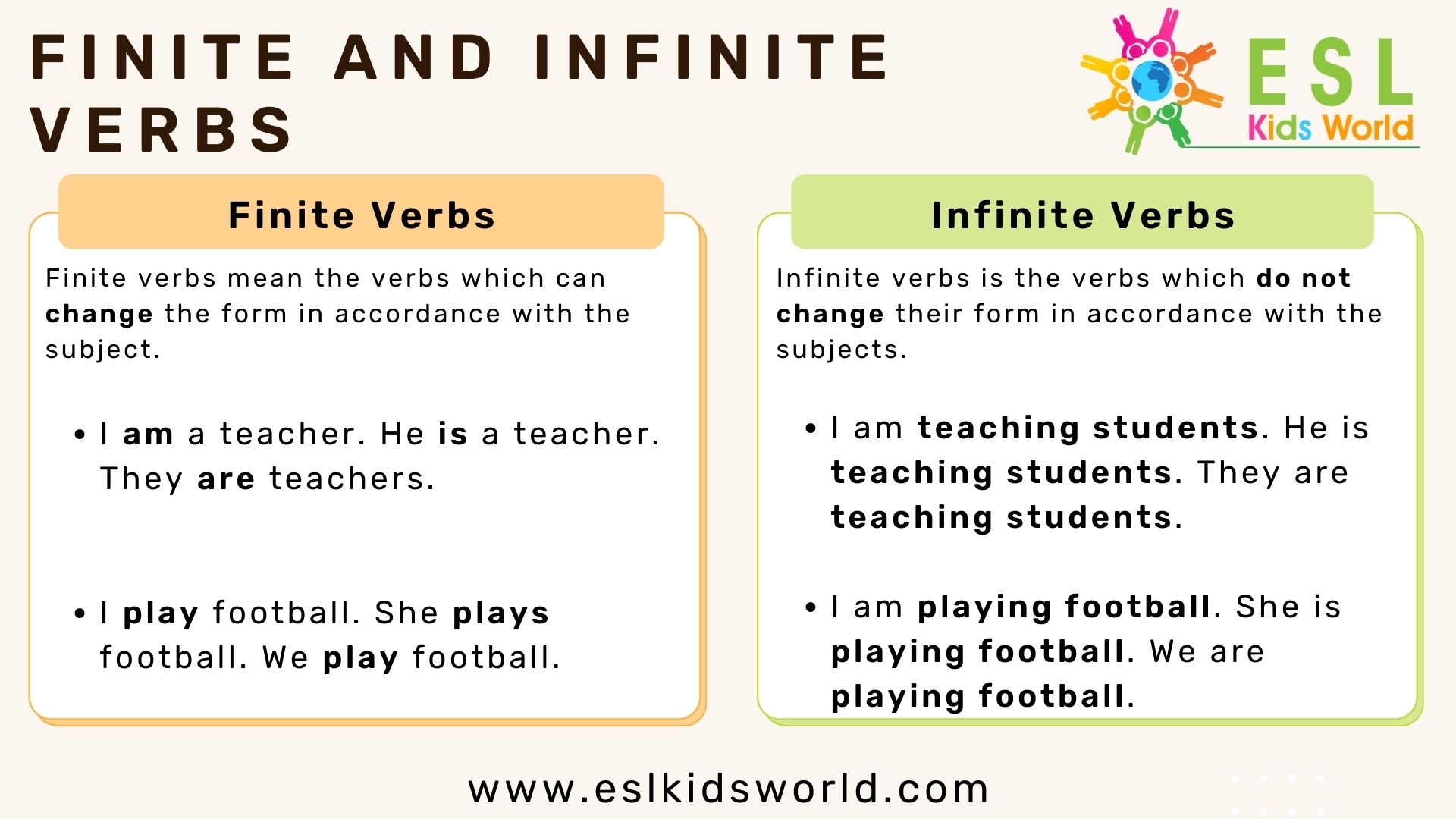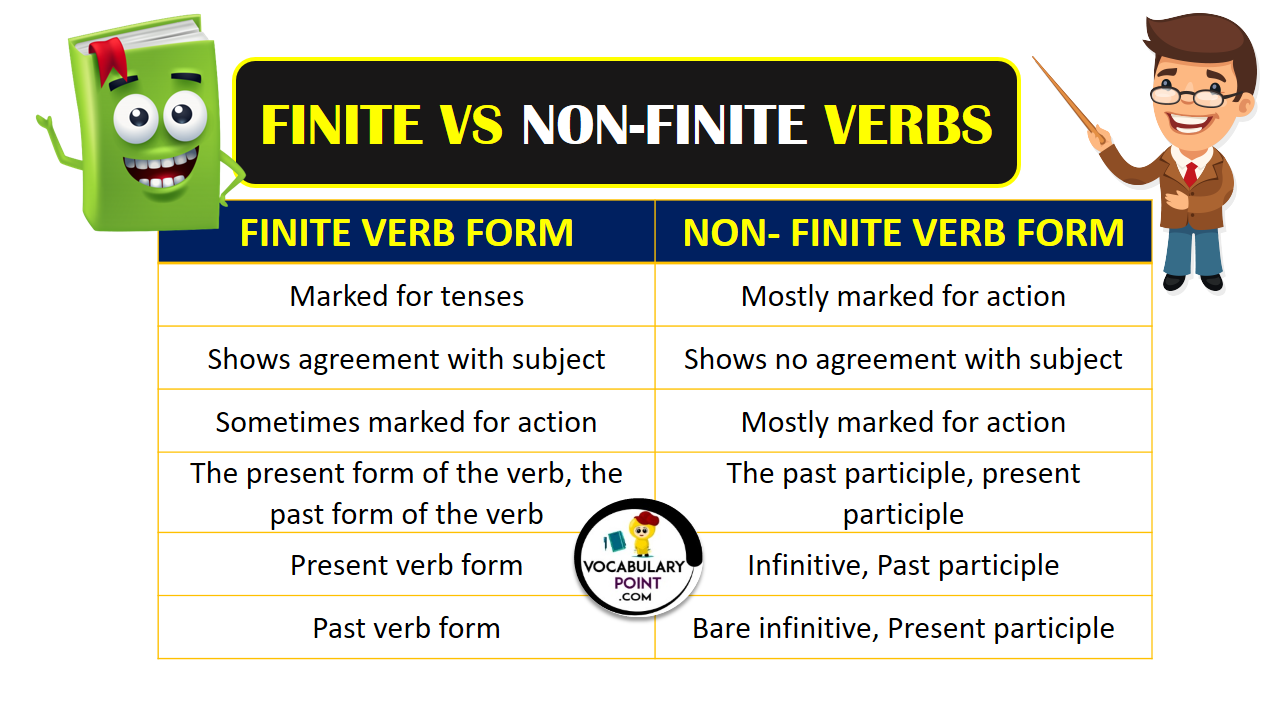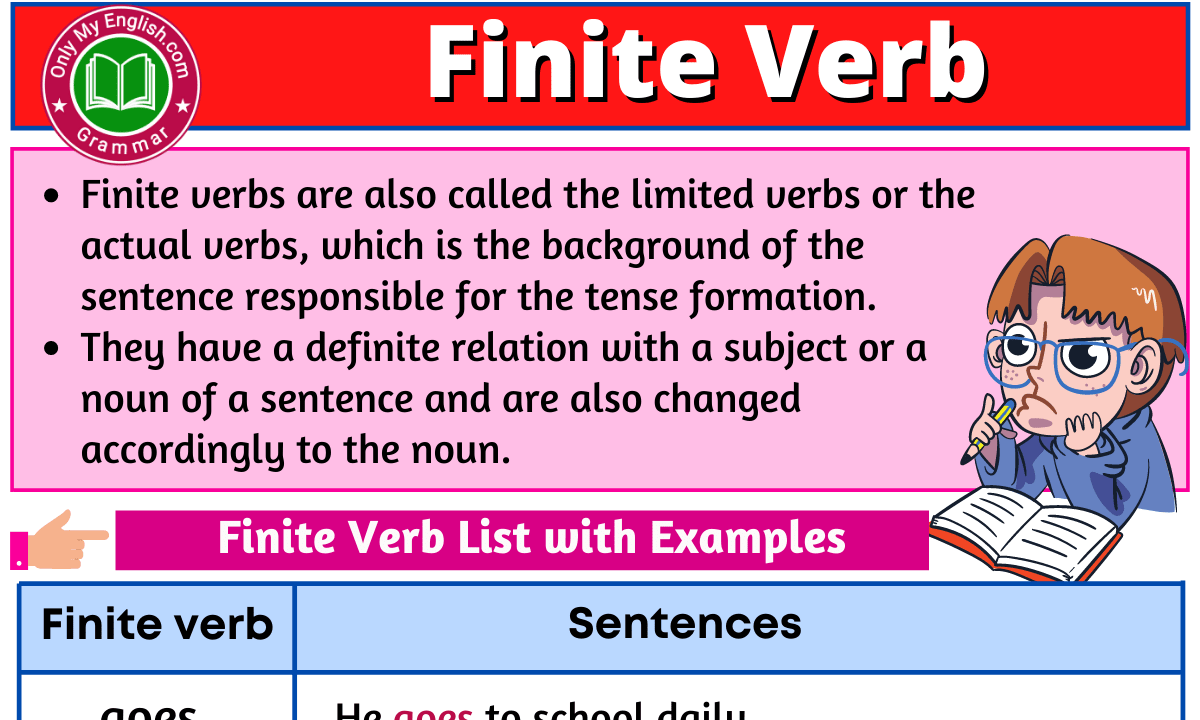Finite Form Of Verb
Finite Form Of Verb - She was waiting in the room before he came in. Finite verb forms show tense, person and number (i go, she goes, we went, etc.): Finite verbs can be a part of an independent clause or verb phrase that can stand alone in a sentence and still make sense.
Finite verbs can be a part of an independent clause or verb phrase that can stand alone in a sentence and still make sense. She was waiting in the room before he came in. Finite verb forms show tense, person and number (i go, she goes, we went, etc.):
Finite verb forms show tense, person and number (i go, she goes, we went, etc.): Finite verbs can be a part of an independent clause or verb phrase that can stand alone in a sentence and still make sense. She was waiting in the room before he came in.
What Is a Finite Verb? Meaning and Examples YourDictionary
She was waiting in the room before he came in. Finite verb forms show tense, person and number (i go, she goes, we went, etc.): Finite verbs can be a part of an independent clause or verb phrase that can stand alone in a sentence and still make sense.
Examples of Finite Verb Learn english grammar, Learn english
She was waiting in the room before he came in. Finite verbs can be a part of an independent clause or verb phrase that can stand alone in a sentence and still make sense. Finite verb forms show tense, person and number (i go, she goes, we went, etc.):
Finite verb Grammar Newsletter English Grammar Newsletter
Finite verbs can be a part of an independent clause or verb phrase that can stand alone in a sentence and still make sense. She was waiting in the room before he came in. Finite verb forms show tense, person and number (i go, she goes, we went, etc.):
What Is A Finite Verb? Meaning And Examples YourDictionary, 41 OFF
Finite verbs can be a part of an independent clause or verb phrase that can stand alone in a sentence and still make sense. Finite verb forms show tense, person and number (i go, she goes, we went, etc.): She was waiting in the room before he came in.
What Is A Finite Verb? Meaning And Examples YourDictionary, 41 OFF
Finite verb forms show tense, person and number (i go, she goes, we went, etc.): She was waiting in the room before he came in. Finite verbs can be a part of an independent clause or verb phrase that can stand alone in a sentence and still make sense.
Finite Verbs & Nonfinite Verbs Useful Rules & Examples • 7ESL
Finite verbs can be a part of an independent clause or verb phrase that can stand alone in a sentence and still make sense. Finite verb forms show tense, person and number (i go, she goes, we went, etc.): She was waiting in the room before he came in.
Finite Verb Definite, Rules, Examples, and List »
She was waiting in the room before he came in. Finite verb forms show tense, person and number (i go, she goes, we went, etc.): Finite verbs can be a part of an independent clause or verb phrase that can stand alone in a sentence and still make sense.
Finite Verb Definition and Examples
Finite verb forms show tense, person and number (i go, she goes, we went, etc.): Finite verbs can be a part of an independent clause or verb phrase that can stand alone in a sentence and still make sense. She was waiting in the room before he came in.
Finite Verb Definite, Rules, Examples, and List » OnlyMyEnglish
She was waiting in the room before he came in. Finite verb forms show tense, person and number (i go, she goes, we went, etc.): Finite verbs can be a part of an independent clause or verb phrase that can stand alone in a sentence and still make sense.
Grammar Finite And Nonfinite Verb Simplemadesimple , 43 OFF
Finite verb forms show tense, person and number (i go, she goes, we went, etc.): She was waiting in the room before he came in. Finite verbs can be a part of an independent clause or verb phrase that can stand alone in a sentence and still make sense.
She Was Waiting In The Room Before He Came In.
Finite verbs can be a part of an independent clause or verb phrase that can stand alone in a sentence and still make sense. Finite verb forms show tense, person and number (i go, she goes, we went, etc.):







:max_bytes(150000):strip_icc()/Finiteverb-5b2bfce3ba61770036b9d39f.png)

